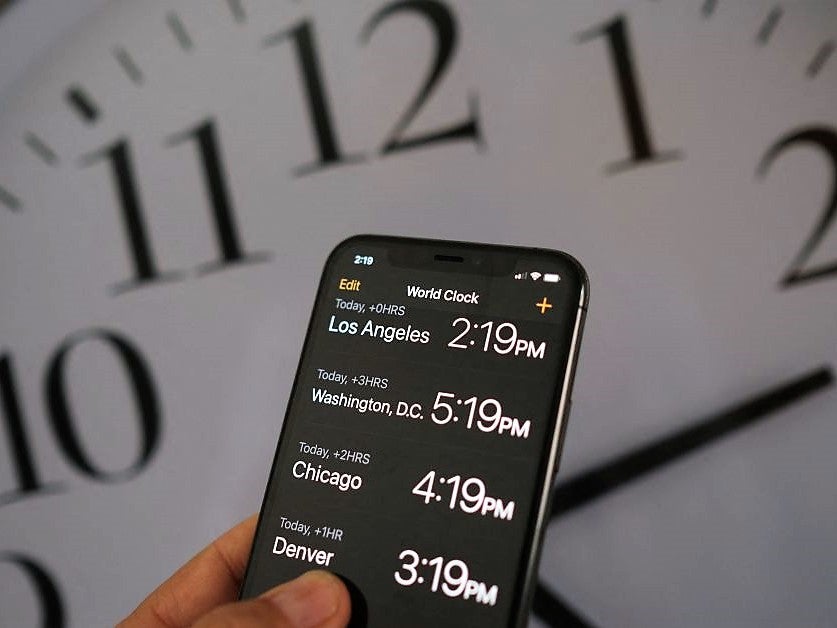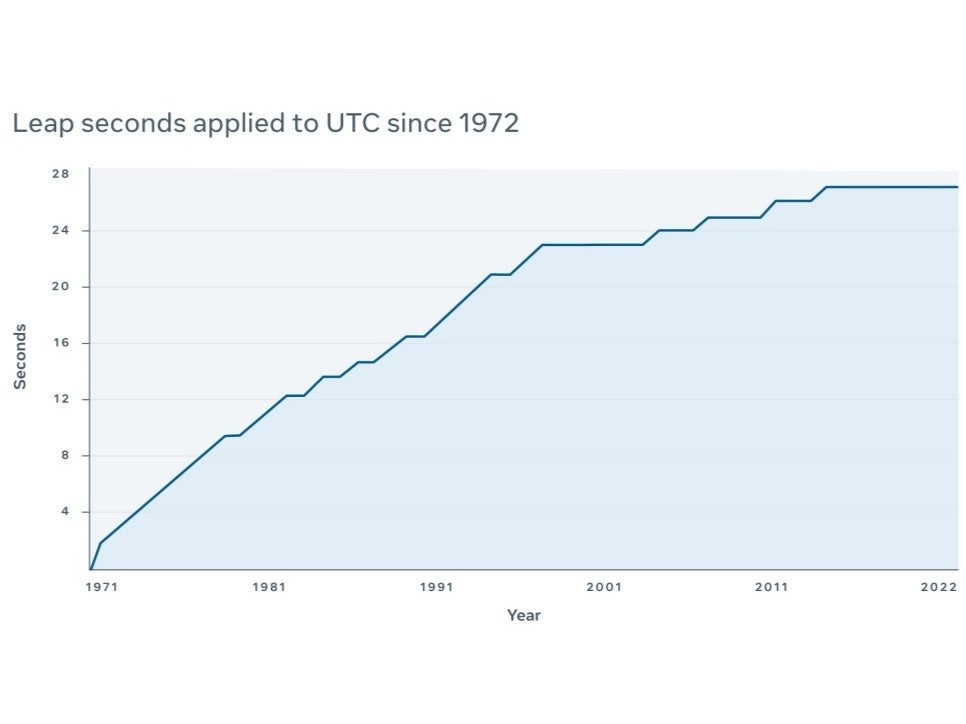Leap second to be finally scrapped after decades of disruption
From 2035 clocks will no longer be paused to allow Earth’s rotation to catch up with atomic time

The controversial leap second will finally be scrapped after tech giants campaigned to have the “devastating” time quirk abolished.
Government representatives and scientists voted to scrap leap seconds at the 27th General Conference on Weights and Measures (CGPM) in Paris on 18 November.
From 2035, leap seconds will never again be added to the world’s clocks in order to make up for the difference between atomic time measurement and the Earth’s rotation.
The practice was first adopted in 1972 in order to keep Coordinated Universal Time (UTC) in sync with the long-term slowdown of Earth’s rotation, however the emergence of the World Wide Web and satellite communications has caused major issues with computer networks in recent years.
Earlier this year, Amazon, Google, Meta and Microsft launched a joint campaign alongside the US National Institute of Standards and Technology to scrap the leap second.
“Introducing new leap seconds is a risky practice that does more harm than good, and we believe it is time to introduce new technologies to replace it,” Meta engineers wrote in a blog post in July.
“Because it’s such a rare event, it devastates the community every time it happens.”

The engineers cited a major Reddit outage in 2012 and a 2017 article from internet infrastructure provider Cloudflare as examples of negative impacts of leap seconds.
In its ruling, CGPM noted that leap seconds also caused problems for satellite navigation systems and energy networks.
“Leap seconds create discontinuities that risk causing serious malfunctions in critical digital infrastructure, including the Global Navigation Satellite Systems (GNSSs), telecommunications, and energy transmission systems,” the organisation wrote in its resolutions of last week’s conference.
“Actions should be taken to address the discontinuities in UTC, recognising that the use of UTC as the unique reference time scale for all applications, including advanced digital networks and satellite systems, calls for its clear and unambiguous specification as a continuous time scale, with a well-understood traceability chain.”
Join our commenting forum
Join thought-provoking conversations, follow other Independent readers and see their replies
Comments
Bookmark popover
Removed from bookmarks